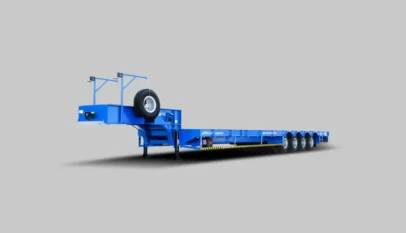Tools for Construction: Essential Equipment for Every Project
Construction projects rely heavily on the right tools to ensure efficiency and quality. Among the essential tools are power tools, hand tools, and safety equipment that help professionals tackle a variety of tasks effectively. Investing in the best tools can significantly enhance productivity and safety on any construction site.
The landscape of construction has evolved, and with it, the tools available to workforces. From advanced machinery to basic hand tools, each plays a vital role in the construction process. Understanding which tools are essential for specific jobs can streamline operations and prevent costly delays.
Whether one is a seasoned professional or just starting out, familiarizing oneself with the necessary tools is crucial. This knowledge not only aids in selecting the right equipment but also enhances overall craftsmanship. Equipping oneself with the right tools is key to successful and timely project completion.
Types of Construction Tools
Tools for Construction involves a wide range of tools that facilitate various tasks, from simple repairs to large-scale building projects. Understanding the different types of tools available is essential for any construction project.
Hand Tools
Hand tools are essential for precision work in construction. They are operated manually and provide control over various tasks. Common hand tools include:
- Hammers: Used for driving nails and breaking objects.
- Screwdrivers: Essential for driving screws into materials.
- Wrenches: Used for loosening and tightening nuts and bolts.
- Pliers: Useful for gripping and manipulating materials.
- Measuring Tapes: Critical for ensuring accuracy in measurements.
These tools are easy to transport, making them ideal for both large sites and small repairs. Proper usage and maintenance can significantly enhance the lifespan of hand tools.
Power Tools
Power tools utilize electricity or batteries to operate, significantly increasing efficiency. These tools streamline labor-intensive tasks. Key types of power tools include:
- Drills: Used for making holes in various materials.
- Saw: Types such as circular saws and jig saws are crucial for cutting materials accurately.
- Sanders: Essential for smoothing surfaces before finishing.
- Nail Guns: Speed up the nailing process, reducing time spent on framing.
Power tools often come with various attachments and settings, enhancing versatility. Operators should receive adequate training to maximize safety and efficiency.
Heavy Machinery
Heavy machinery is used for large-scale construction tasks that require substantial power. These machines can handle the heavy lifting and groundwork that manual tools cannot. Important types include:
- Excavators: Used for digging trenches and removing debris.
- Bulldozers: Effective in moving large quantities of earth and debris.
- Cranes: Essential for lifting heavy materials to high places.
- Forklifts: Used for moving materials short distances within worksites.
Heavy machinery requires specialized training to operate safely. Proper maintenance is critical to ensure their reliability and effectiveness on the job site.
Selecting the Right Tool for the Job
Choosing the appropriate tool is crucial in construction. This decision impacts efficiency, safety, and the quality of the finished work. Understanding specific job requirements and the tools’ features can lead to optimal outcomes.
Understanding Job Requirements
Each construction task has distinct requirements that dictate tool selection. Assessing the scope and nature of the work helps identify which tools are necessary. For instance, tasks such as cutting, drilling, or sanding require specialized tools tailored for those functions.
Considering the material type is essential. Wood, metal, and concrete each necessitate different tools for effective manipulation. Consulting with experienced professionals can provide insights into the best tools for specific jobs.
Additionally, project size affects tool choice. Larger projects may benefit from heavy-duty tools, while smaller tasks might only require handheld equipment. Evaluating these factors ensures the right tool is chosen to meet the job’s demands.
Durability and Quality Considerations
Durability directly correlates with the performance of construction tools. High-quality materials typically indicate a longer lifespan and better reliability. For example, tools forged from high-grade steel or equipped with reinforced components tend to withstand heavy use.
Investing in reputable brands often guarantees superior quality. It is advisable to read reviews and seek recommendations from professionals who have hands-on experience with various tools. Inexpensive options may compromise performance and safety in the long run.
Maintenance also plays a role in durability. Regular inspections and proper care extend a tool’s life. Workers should be trained in maintenance procedures to ensure longevity and function.
Safety and Usage Training
Safety must be a top priority when selecting and using construction tools. Proper training is vital for anyone operating tools to prevent injuries. Familiarity with tool functions and limitations helps mitigate risks during use.
Employers should provide comprehensive training programs focused on handling tools safely. This training should cover safe practices, personal protective equipment (PPE), and emergency procedures. Regular refreshers and updates are beneficial in maintaining safety standards.
Additionally, using tools correctly enhances efficiency. Each tool comes with specific instructions on operation, which must be adhered to for optimal results. Understanding these guidelines reduces the likelihood of accidents and promotes a safer work environment.
Bathroom Remodel Hamilton: Elevate Your Space with Expert Design Tips
Bathroom remodels in Hamilton are becoming increasingly popular as homeowners seek to enha…













